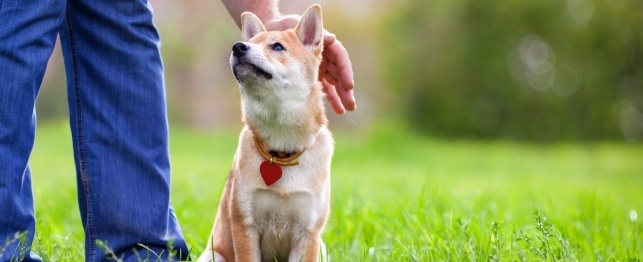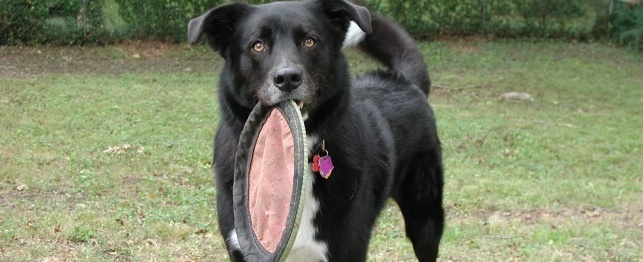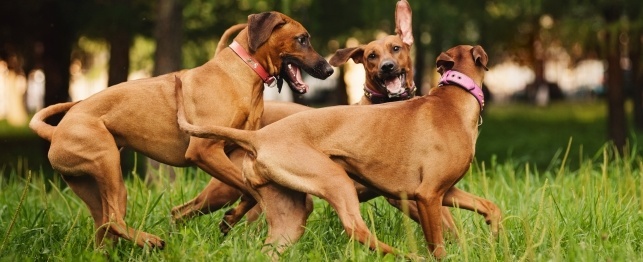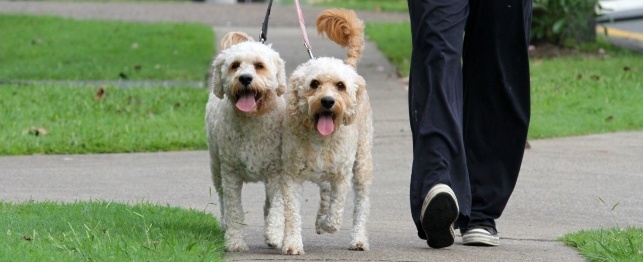Dog training is a misnomer; it should actually be referred to as human training. This is true because, a person needs to learn how to train a dog effectively before they can actually do it. People are not born knowing how to train a dog and need to first learn if they really desire to do so. This article provides excellent dog training tips that can help develop a better understanding of the process.
If you want to train your dog successfully, you have to understand what will motivate your dog to act. While your dog is learning what you are teaching him, you are learning what methods your dog responds to the best. Regardless of your reason for training your dog, he will need an assortment of various training exercises and a lot of positive reinforcement. Happy dogs tend to perform better, and are easier to train successfully.
When training your dog never punish him; doing so will only make him be resistant to any further training. Do everything you can to cut off misbehavior before it happens, and if your dog does misbehave during training, you should show what what behavior you want to see, not punish your pet. Training is about building your pet up, not breaking him down.
Begin your training regimen with an easy task for your dog. This will be great for immediate gratification, and your dog will begin to understand what you expect along the way. In doing so, you will see better and more positive results.
Your dog will learn if you keep it up and give him rewards. First, you must completely walk the dog through what you want to accomplish, and then set up a daily routine around the behavior that includes rewards. Your dog will then correctly learn the way to do a trick. Repetition and reward is the way to show them.
Don't just give your dog treats during training, learn to make use of positive reinforcement as well. Use treats to improve the behavior of dogs. Having said that, carrying treats on you 24/7 is not very likely. Start using praise and extra attention, hugging and patting, when your dog displays a positive behavior.
Don't vocalize your dog's name negatively. This will help foster greater success, in that the dog will connect hearing its name with engaging in proper behavior. So, don't say your dog's name negatively.
When correcting your dog verbally, use sharp, short, concise commands. Don't rant on and on about how bad your dog is. Say NO and redirect your dog to the desired behavior. You should also be certain that your voice is loud enough to get their attention, but also conveys seriousness.
Give your puppy some toys to chew on so they do not hurt while teething, keep other things they might want to chew on out of their reach! You should replace the object with a chew toy as soon as this occurs so your dog understands what is okay to chew on. Puppies sometimes chew objects while going through their teething phase. A wet cloth that has been frozen is perfect for them during this time.
It's a good idea to keep in mind the number of treats you are giving your dog throughout the day. Giving him too many will add unneeded calories to his diet and cause him to become overweight. A lot of people forget to account for treats given during training when considering a dog's diet plan.
Training your dog can be challenging, but never give up. Your dog will need constant reinforcement, otherwise the behaviors and actions you have taught it may be lost. Just as you need to keep feeding and sheltering your dog, training is a never-ending process.
Since you have found a resource to help you out, you must implement what you have been taught to your training. Obtaining a good base of knowledge is the best way to approach the training process, especially is you have no experience in this field.

 Fun at the Park for You and Your Dog
Fun at the Park for You and Your Dog
Fun at the Park for You and Your Dog
Fun at the Park for You and Your Dog
 Safe Fetch Toys for Your Dog
Safe Fetch Toys for Your Dog
Safe Fetch Toys for Your Dog
Safe Fetch Toys for Your Dog
 Dogs Play at the Park
Dogs Play at the Park
Dogs Play at the Park
Dogs Play at the Park
 How Much Exercise Does My Dog Need?
How Much Exercise Does My Dog Need?
How Much Exercise Does My Dog Need?
How Much Exercise Does My Dog Need?
 MORE Games That Delight Dogs
MORE Games That Delight Dogs
MORE Games That Delight Dogs
MORE Games That Delight Dogs